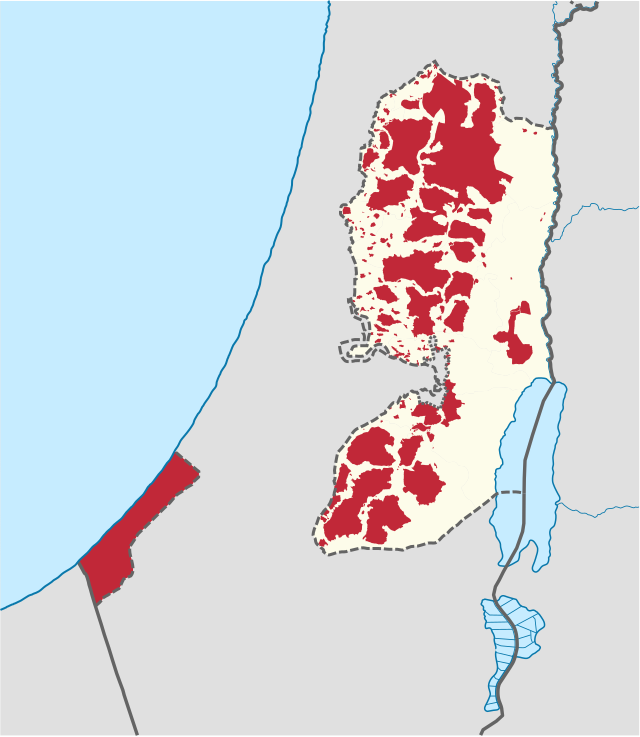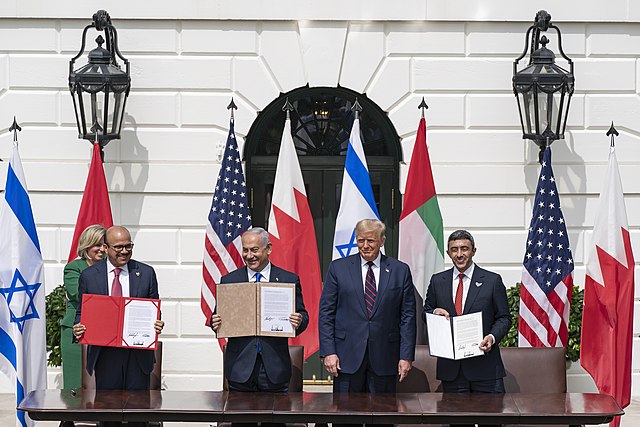Israeli Settlers, Reoccupation, and the Abraham Accords



By: Ghassan Rubeiz / Arab America Contributing Writer
Three noteworthy items of news relating to the occupation of Palestine surfaced over the weekend. Taken together, they represent a glimpse into the past, the present, and a possible future of Israel’s illegal occupation of Palestine
Israeli Settlers
A New York Times Magazine report investigates how the lawless, militant culture of Israeli settlers in the West Bank gradually infiltrated the Israeli mainstream. Based on historical documents and interviews conducted over the years, Ronen Bergman and Mark Mazzetti show how “a half-century of lawless behavior that went largely unpunished propelled a radical form of ultranationalism to the center of Israeli politics.” The report describes two separate and unequal systems of criminal justice; a police force that systematically ignores Palestinian complaints; and an ongoing land grab in which houses, farms, and orchards are destroyed with impunity, with the tacit assent of a growing number of Israeli officials. Not only does the report cite interviews of Palestinians who tried to use nonviolent means to defend their communities from the settlers’ crimes, but remarkably, it also cites voices from within the Israeli bureaucracy, legal system, and government who also tried to hold the settlers accountable. The report makes clear the extent to which the settlers undermined the interests of the state of Israel and its Jewish majority. The report helps us to recognize that the settlers’ might-makes-right mentality is shared now by Netanyahu and his team. The report’s historical background sheds light on Israel’s ongoing actions in Gaza.
Reoccupation
On Friday, a Washington Post article demonstrated that Israel does indeed have concrete plans for a military reoccupation of Gaza. The Israeli Defense Forces have been busy for months splitting the enclave into a northern and a southern section, with a newly built corridor, the “Netzarim Corridor, allowing access to both. The army flattened the surroundings to establish barracks, bases, and other infrastructure. This course of action brings to mind the earliest beginnings of Israel’s occupation of the West Bank and East Jerusalem, as outlined in the New York Times report: military presence was followed by local civil administration under the supervision of the Israeli government. Illegal outposts developed into permanent residential settlements.
Abraham Accords
In this context, it is also worth commenting on a third item of news: a weekend visit of US National Security Advisor Jake Sullivan to Saudi Arabia and Israel. The goal is to advance the Abraham Accords, an agreement promising a “credible path” to Palestinian independence and a bilateral security agreement between the US and Saudi Arabia. Sullivan made progress in a conversation with Saudi Crown Prince Mohammad Bin Salman. The US is ready to guarantee the protection of Saudi Arabia from regional threats if the Saudis join the circle of the Abraham Accords. Historically, the Saudis have rarely hesitated to reward the Americans for “occupying” them politically and economically. The next day Sullivan visited Israel and met with Netanyahu. The US is eager for Israel to stop the war momentarily to allow for the return of hostages, improve the delivery of humanitarian aid, and reduce war casualties among civilians. Washington also wants Netanyahu and his cabinet to project a postwar political plan. Regrettably, Israel is not listening. Sullivan returned home without achieving much in Israel, which is unsurprising given Israel’s current military strategy. While Washington is working on a diplomatic scheme, supposedly aimed at establishing regional peace, Tel Aviv is working on achieving stability and “security” by military means: the destruction and reoccupation of Gaza.
Taken together, these three news items can only cast doubt on the fate of Gaza, Palestine, and the Abraham Accords. Washington still appears to want to take the narrow, Arab Gulf-Israeli approach to regional peace. Israel and the US refuse an inclusive approach to peace, an approach that would include the Shiite interests in Iran, Syria, Iraq, Lebanon, and Yemen. I fear this plan will be perceived in the region as a Judeo-Christian–Sunnite alliance against a Shiite arc of power. This course of action is risky and doomed. Does the fate of the West Bank foreshadow the fate of Gaza?
Check out our Blog here!









